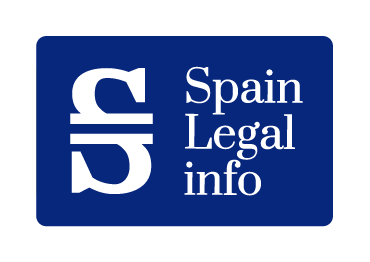Understanding Spain’s Visa Requirements
Navigating the visa requirements for Spain is a crucial step for non-EU/EEA citizens looking to relocate for work or extend their stay. Whether it’s for remote work, study, or leisure, understanding the eligibility criteria and the variety of visas available is essential.
Eligibility for Non-EU/EEA Citizens
For non-EU/EEA citizens aiming to reside in Spain, various visas cater to different purposes like education, work, and tourism. Remote workers, in particular, can opt for the Spain Digital Nomad Visa, designed to offer the flexibility of living and working remotely from Spain. To be eligible, applicants must meet specific criteria:
- Non-EU/EEA citizenship
- A university degree or three years of professional experience
- Verifiable capability to work remotely
- A steady income to support their stay in Spain
- A clear criminal record from their country of residence for the past five years
Key Visa Types
Spain offers a diverse range of visa types to accommodate the different needs of international applicants. Some of the key visas include:
- Spain student visa: For individuals seeking to pursue education in Spain.
- Spain work visa: For those who have secured employment in Spain.
- Spain tourist visa: For short-term visits and tourism.
- Spain residence visa: For those planning to reside in Spain without working or for family reunification.
- Spain visa for investors, entrepreneurs, and retirees: Catering to specific groups such as investors, business founders, and retirees.
Each visa type has its own set of visa requirements for Spain, including documentation, financial means, health insurance, and more. The Spain visa application form, visa fees, processing time, and required visa documents vary depending on the visa category and the applicant’s nationality, such as Spain visa for US citizens, or Spain visa for Indian citizens.
For a detailed guide on the application process, including visa appointment, interview, and potential rejection reasons, visit our comprehensive articles on the Spain visa application process, extension process, and specific cases like Spain visa for minors and Spain visa for journalists.
Understanding Spain’s visa requirements is the first step towards planning your move. With the right visa, remote workers can benefit from the country’s rich culture and favorable climate while continuing their professional pursuits.
Introducing the Digital Nomad Visa
Spain has introduced a new type of visa aimed at remote workers and freelancers, known as the Digital Nomad Visa. This visa caters specifically to non-EU/EEA citizens who wish to experience living in Spain while continuing their work remotely for companies based outside of Spain.
Visa Duration and Renewal
The Spain Digital Nomad Visa allows individuals to live and work in Spain for up to 12 months initially. This visa is renewable and can extend to a stay of up to five years, provided that the visa holder continues to meet the necessary requirements. To be eligible for renewal, applicants must demonstrate ongoing remote work and the ability to support themselves financially without burdening the Spanish social welfare system.
| Duration | Renewal Potential | Total Stay |
|---|---|---|
| Up to 12 months | Renewable | Up to 5 years |
Income and Tax Considerations
Applicants for the Spain Digital Nomad Visa must prove a stable income to ensure financial self-sufficiency. The minimum income requirement is set at €2,160 per month for a single adult, with higher thresholds applicable for families. This income can come from one or multiple sources, as long as it is stable and allows the applicant to work remotely.
Upon becoming a tax resident in Spain, which typically occurs after spending more than 183 days in the country within a calendar year, visa holders may be eligible to pay a special reduced tax rate. This reduced rate is 24% on income up to €600,000 per year. It is designed to attract remote workers by offering a more favorable tax regime compared to standard income tax rates.
| Minimum Income per Month | Tax Rate (up to €600k/year) |
|---|---|
| €2,160 (single adult) | 24% |
Individuals considering the Digital Nomad Visa should consult tax professionals for advice on how this special tax rate may affect their overall financial and tax situation. Understanding the full scope of fiscal obligations is crucial when planning a move to Spain as a remote worker. For more information on visa requirements for Spain, interested parties can explore our comprehensive guides on visa requirements for Spain and begin preparing their application with our article on the Spain visa application process.
Application Essentials for Remote Workers
For remote workers seeking the opportunity to reside in Spain while continuing their professional activities, the Spain Digital Nomad Visa presents a unique option. When applying for this visa, remote workers must meet specific criteria and prepare a range of documents.
Proving Remote Work Capacity
Applicants must demonstrate their capability to work remotely. This involves providing evidence of employment with a non-Spanish company or showing that the applicant owns a business that operates predominantly outside of Spain. Eligibility criteria include possessing a university degree or three years of professional experience. Applicants must also present contracts or legal documents that verify their remote work arrangements. All documents should clearly indicate the applicant’s role, the nature of the work, and the fact that it can be conducted remotely.
Financial Self-Sufficiency Evidence
Financial stability is a crucial requirement for the Spain Digital Nomad Visa. Applicants must show a steady income that is sufficient to support themselves during their stay in Spain. This could include bank statements, tax returns, or pay stubs that reflect a consistent and reliable source of income. The Global Residence Index suggests that the income should be commensurate with the cost of living in Spain and should come from the remote work the applicant will be conducting.
Health Insurance and Criminal Record
Comprehensive health insurance valid in Spain is mandatory for applicants. The insurance policy must meet all the necessary requirements for the entire intended stay and offer benefits similar to those received by Spanish residents. Proof of this insurance must be submitted with the visa application. Moreover, applicants must provide a clear criminal record for the past five years from their country of residence, underscoring the importance of a reputable background for eligibility.
| Requirement | Details |
|---|---|
| Remote Work Proof | Employment or business ownership documents |
| Financial Evidence | Bank statements, tax returns, pay stubs |
| Health Insurance | Comprehensive policy valid in Spain |
| Criminal Record | Clear record for the past five years |
The application process for the Spain Digital Nomad Visa is meticulous, requiring attention to detail and thorough preparation of documents. By ensuring that all the essentials are in order, remote workers can confidently proceed to the next steps, which include initiating contact with the Spanish consulate, submitting the application, and scheduling an appointment (Spain visa appointment).
It is imperative for applicants to comply with each requirement to avoid complications or rejection. Additional resources and guidance on visa types and application processes, such as the spain work visa and the spain residence visa, can further assist applicants in navigating the path to obtaining a visa for Spain.
We listed the most recommended professionals on this field. So you can have a smooth and worry-free experience with your paperwork in Spain. Provide your contact details and they will reach you out to learn about your case.

The Application Process Step by Step
Navigating the application process for a Spain visa, especially for remote workers, requires a step-by-step approach to ensure compliance with the regulations and a successful outcome. The process for securing a Spain visa for remote workers involves key stages – from initial contact to the submission of documentation and finally to obtaining residency.
Initial Contact and Documentation
The initial step in applying for the Spain Digital Nomad Visa is to make contact with the Spanish consulate or embassy in your country. This can be done by visiting their official website or contacting them via phone or email to express your intent to apply for the visa. Upon contact, you will be provided with a list of required documents and the format in which they need to be presented. The documents typically include a valid passport, proof of income, health insurance, and a criminal record check (Global Residence Index).
It’s crucial to gather all the necessary documents per the consulate’s guidelines to avoid any delays or complications during the application process. Refer to the spain visa documents section for a comprehensive checklist of what you need to prepare.
Submission and Appointment Scheduling
After you have assembled your documentation, the next step is to submit your application. This involves scheduling an appointment with the consulate or embassy for the submission of your visa application. Appointments can be booked online via the consulate’s appointment system or, in some cases, over the phone.
On the day of your appointment, ensure that you have all the required documentation, including the spain visa application form completed accurately. Submission of your application will also involve paying the necessary spain visa fees. The spain visa processing time varies, but applicants can generally expect a decision within a few weeks to a couple of months.
After Submission: NIE and Residency
Following the submission of your visa application. You will need to be issued a NIE (Foreigner Identity Number), which is essential for your legal stay in Spain. Visit the police web portal for information. Right now their website is not supporting english, alternatively you can use Google translate on your Google Chrome browser. If you are not in Spain, then you can request this document to your closes Spanish embassy or consular office.
The process for obtaining a visa in Spain as a remote worker is quite methodical and requires attention to detail. By following the steps outlined above and utilizing the resources available, such as the spain visa appointment and spain visa extension process, applicants can navigate the process with confidence.
Benefits and Flexibility
The Spain visa for remote workers, also known as the Digital Nomad Visa, offers a host of benefits and a level of flexibility that is especially tailored to the lifestyle of digital nomads and remote workers. This includes attractive tax benefits, ease of travel within the Schengen Area, and no stringent requirements on the minimum duration of stay.
Tax Benefits for Remote Workers
One of the most significant advantages of the Digital Nomad Visa is the tax benefits it offers. Most visa holders will become tax residents in Spain and are eligible to pay a special reduced tax rate. This rate is at 24% on income up to €600,000 per year, which is quite favorable compared to standard tax rates. Furthermore, Spain’s tax agreements with 90 other countries can help prevent double taxation, allowing remote workers to maximize their earnings while enjoying the Spanish lifestyle.
Travel within the Schengen Area
Holders of the Spain Digital Nomad Visa have the added benefit of being able to travel within the Schengen Area without the need for additional visas. This makes it convenient for remote workers who wish to explore Europe while maintaining Spain as their base. The Schengen Area comprises 26 European countries that have abolished all passport and other types of border control at their mutual borders. This seamless travel experience is a significant draw for those looking to make the most of their time in Europe.
No Minimum Stay Requirement
Spain’s new visa program for remote workers stands out for its flexibility regarding the duration of stay. Unlike some other residency programs, there is no fixed minimum stay period required for Digital Nomad Visa holders. This flexibility makes the visa particularly appealing for individuals who may wish to split their time between Spain and their home country or for those who are not yet ready to commit to long-term residency (Euronews).
Overall, Spain’s visa for remote workers is designed to provide a balance between work and lifestyle, offering opportunities to integrate into the Spanish culture while maintaining a global mobility and work flexibility. Whether it’s the tax benefits, travel opportunities, or the lack of a minimum stay requirement, the Digital Nomad Visa is an attractive option for those looking to relocate to Spain for work or a temporary change of pace.
Special Conditions and Limitations
For remote workers considering the Spain visa for remote workers, it’s imperative to understand the special conditions and limitations that accompany the opportunity to live and work in Spain. These conditions can affect your income, tax liabilities, and health insurance requirements.
Income from Spanish Clients
The Spanish Digital Nomad Visa is unique in that it allows up to 20% of a freelancer’s income to come from Spanish clients. This is a significant consideration for remote workers who may want to tap into the Spanish market while living in the country. Successful applicants can also apply for a Spanish residency permit, which allows for travel around the European Union, granting greater mobility and flexibility.
Tax Residency and Reduced Rates
Upon obtaining a Spanish visa for remote work, most visa holders will become tax residents of Spain. As tax residents, they are eligible to pay a special reduced tax rate of 24% on income up to €600,000 per year. It’s important to note that Spain has established double taxation agreements with 90 other countries, potentially relieving remote workers from being taxed twice on the same income.
| Income Bracket (€) | Tax Rate (%) |
|---|---|
| Up to 600,000 | 24 |
| Above 600,000 | Standard Rates Apply |
Health Insurance Specifications
In addition to income and tax considerations, Spain’s Digital Nomad Visa stipulates that applicants must provide proof of full health insurance coverage. This ensures that remote workers have access to healthcare services without placing a burden on the Spanish healthcare system. Furthermore, applicants must have a clean criminal record and meet the minimum stay requirement, which includes not having lived in Spain for the last five years.
When preparing to apply for the Digital Nomad Visa, remote workers should thoroughly review the visa requirements for Spain to ensure all conditions and limitations are met. Careful consideration of these factors will facilitate a smoother application process and enhance the chances of obtaining the visa. For more detailed information about the application process, refer to our comprehensive guide on the Spain visa application process.




